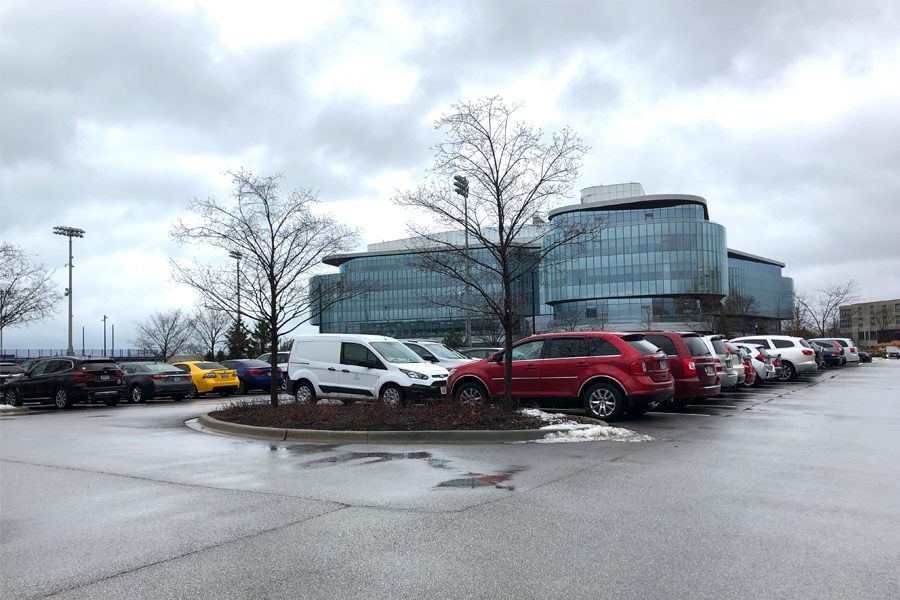High costs, inconvenience of on-campus parking leads students to take their cars elsewhere
Alison Albelda/Daily Senior Staffer
Cars parked in a University lot. Due to the high cost of parking passes, some students choose to park in Evanston instead.
February 7, 2019
Parking lot closings and snow-clearing days are frequent occurrences on campus during the winter months, but these closings exacerbate the already limited nature of on-campus parking options.
For many students, the best option is to avoid the uncertainties of on-campus parking altogether by using Evanston residential parking.
Weinberg junior Stephanie Lopez, who lives on campus and is therefore eligible for a University parking pass, decided to use residential street parking instead –– the cost of which is much lower than University rates. A set of twenty single-day passes for Evanston residential areas costs only $4, while student parking passes cost $477 for the full academic year, or about $1.80 per day.
Lopez lives in Foster-Walker Complex and said she chose to park on Orrington Street because it’s close and “really easy.”
“The Evanston residential pass is surprisingly cheap,” she said.
With a University pass, parking is available on campus lots from 8 a.m. to 4 p.m. on weekdays when school is in session. Outside of these hours, the lots are open for anyone to use.
Yet according to the University’s parking regulations, “purchasing a permit does not guarantee a space” as “lots in the center of campus are in particularly high demand during the week.”
Parking isn’t added for special events, said Parking Services Manager John Coleman, putting even further strain on the already crowded lots, which are often closed for routine maintenance like paving and stripping or as the result of a construction project.
“For example, the lot next to Kemper Hall is now closed to accommodate the replacement of the city water reservoir that is underneath the lot,” Coleman said.
SESP junior Bailey Halkett, who parks her car off campus, said her experience with parking as a student has been challenging.
“Parking on campus is pretty poor. The lots that are available to students are very limited and there aren’t very many of them,” Halkett said. “It’s expensive to get a parking permit, which limits a lot of people.”
However, off-campus parking has its hazards as well. The city hands out tickets when drivers forget to move their cars for street cleaning, during sports games or on snowy days. Halkett said she’s “gotten plenty” of tickets for this reason.
Evanston parking tickets range from $10 to $40, depending on the offense.
In addition to high costs of on-campus parking, student parking passes are not available to those who live in the “walking zone,” an area bounded to the north by Central Street, to the south by Lake Street and to the west by Ridge Avenue.
But living nearby has its drawbacks. Houses and apartments within the walking zone are much more expensive than those outside it — options further away could save renters up to $500 per month.
Some students, like Bienen senior Tina Zheng, decided to live closer to campus for convenience. The benefits of living closer to campus outweighed the inability to buy an on-campus pass, she said, which meant moving further away was out of the question. She didn’t know her location disqualified her from obtaining an on-campus pass.
“I think anybody would rather be closer to campus and not have to deal with the car issue,” Zheng said. “Especially if you have roommates and you’re sharing a car, you don’t want to inconvenience them.”
Email: [email protected]
Twitter: @jasonharward00


